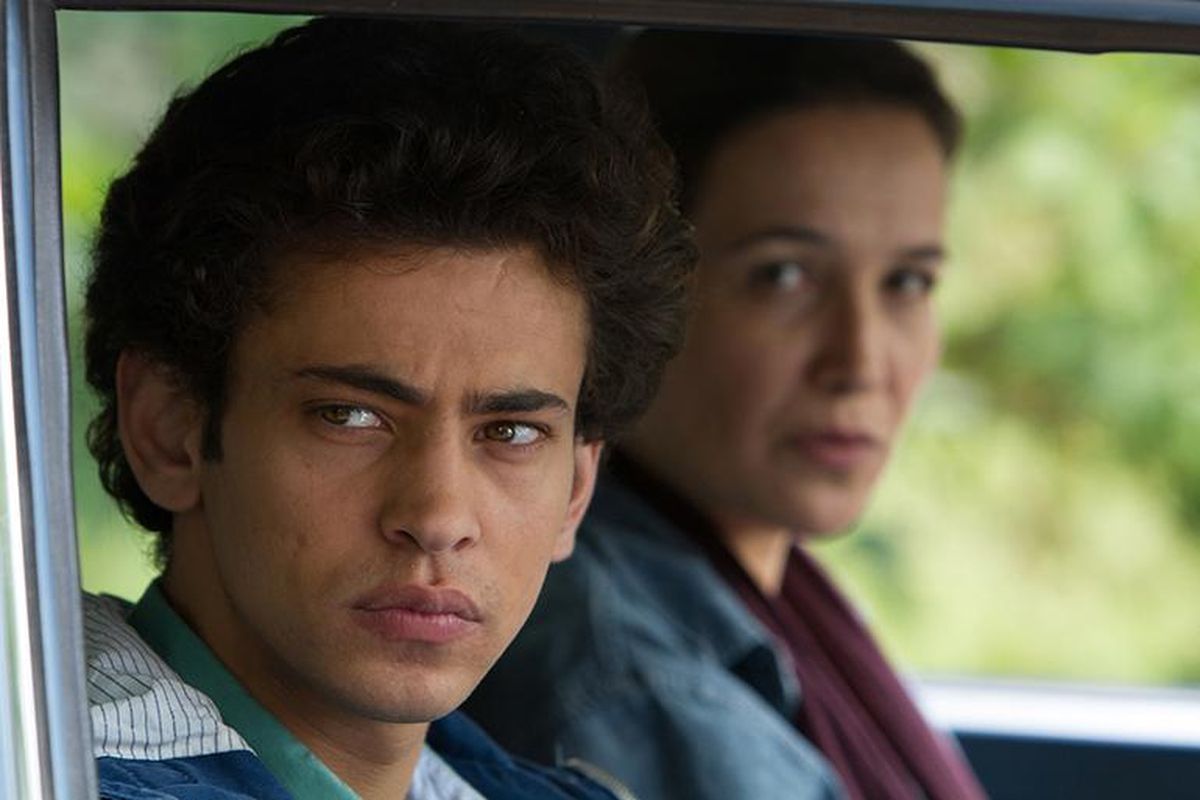Jewish film festival aims to challenge preconceptions

The Spokane Jewish Cultural Film Festival has been presenting complex, thought-provoking international movies about the intricacies of Jewish culture and identity since the early 2000s. Sponsored by Spokane Area Jewish Family Services, the festival kicks off at the Magic Lantern next week, and this year’s lineup includes three features and a short.
“We want films that in some way challenge preconceptions about what it means to be Jewish,” said Neal Schindler, director of Jewish Family Services. “Faith in general, and the Jewish faith in particular, are still not addressed well in the majority of movies. But I think there are more out there than there used to be, especially those that deal with Judaism in a thoughtful way.”
But the festival isn’t just aimed at Jewish viewers looking to contemplate their own faiths: It’s for all film lovers who believe cinema can be a vessel for understanding and empathizing with people of all religions and backgrounds.
“We want this festival to be both for the Jewish community and the larger community,” Schindler said. “If someone doesn’t have a lot of knowledge about the Jewish experience or Judaism, we want them to be able to take something meaningful away from one or more of the films.”
Here is the schedule for the upcoming Jewish Cultural Film Festival, which begins Thursday:
“A Borrowed Identity,” 7 p.m. Thursday – Israeli filmmaker Eran Riklis’ latest is both a gentle coming-of-age story and a thoughtful examination of his country’s political, religious and social rifts. The film begins in the early 1980s, introducing us to the family of a young Israeli boy named Eyad, and it follows him into adolescence as he leaves his Arab village for an elite boarding school in Jerusalem.
“I haven’t seen a lot of Israeli films written by people of Palestinian-Arab origins that humanize all the characters involved,” Schindler said. “You have a protagonist who’s a Palestinian-Israeli teenager and who’s really well developed and sympathetic. I think that it’s wonderful to have a story that gives access to and allows people to talk about issues of Israeli-Palestine stuff without it being full of death and sadness.
“The idea of complicated but worthwhile relationships across those borders – that’s really interesting to me. And for it to be done so intelligently and with such compassion is terrific.”
“Brave Miss World,” 7 p.m. Jan. 23 – When she was 18, Israeli model Linor Abargil was raped at knifepoint by her personal travel agent. A mere seven weeks later, she was crowned Miss World 1998. The documentary “Brave Miss World” concerns Abargil’s difficult journey, her crusade to speak up on behalf of sexual assault victims and her growing interest in Judaism.
“It’s about a very serious topic, but it’s also inspiring and, all things considered, uplifting, even if parts of it are wrenching,” Schindler said. “She had different ways of coping with her sexual assault, and one of those was finding not just solace in Judaism but a certain sense of safety.”
After playing the international festival circuit, “Brave Miss World” was distributed by Netflix and was nominated for an Emmy Award in 2014. The feature will be preceded by the short film “Vishneva, Belarus Soviet Union Poland,” and it will be followed by an audience discussion with Alissa Ackerman, professor at the University of Washington Tacoma.
“Magic Men,” Jan. 24 at 1 p.m. – “I’m not a big fan of capital-U uplifting movies,” Schindler said. “At a certain point I want to push them away because I feel like I’m being manipulated. And I do think ‘Magic Men’ is the most sentimental movie we’re showing this year, but I think it earns it.”
Both a road movie and a generational divide comedy, “Magic Men” follows a 78-year-old Holocaust survivor and practicing magician named Avraham (Makram J. Khouri, “Munich”) and his son, a Hasidic rapper, as they travel across Greece together. They’re searching for the good Samaritan, also a magician, who sheltered Avraham during World War II, all the while dealing with the father’s loss of faith and the son’s embrace of Jewish teachings.
“It fairly gently dismantles our preconceptions about what it means to be religious, what it means to not be religious,” Schindler said. “How differences in faith affect familial relationships is a theme that’s very common in life, but it’s not explored that often in film – at least it’s not explored thoughtfully very often. … The performances are nuanced and so is the writing: You have a few flawed characters thrown together, but the care with which they’re drawn is what makes this movie stand out.”